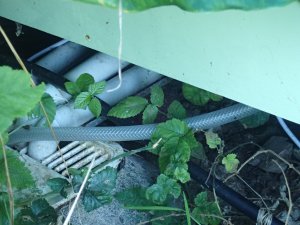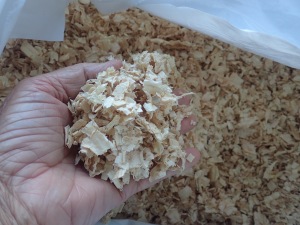Update: 26.6.2023: The latest update from our Government is that there will be reduced regulation of small scale producers and it will exclude Rongoā (traditional Maori healing methods.) At present it seems we can continue to supply individuals but we’re unclear about whether we will be able to continue supplying wholesale to shops. It’s a wait and see at this stage. Fingers crossed.
Here is our original blog post with information about the Bill:
We’re not sure if you’re aware of the Therapeutic Products Bill (TPB) which the NZ Government is looking to put through later this year, but we wanted to make sure that you were aware of it, and to be informed. Reading through the bill itself, it’s extremely vague, but it seems to have the potential to be extremely detrimental for many small businesses. Natural Health Products (NHPs) are likely to be heavily regulated, and the ability of consumers to choose natural products could be thoroughly compromised. Please take the time to be as informed as you can be.
We’ve spent quite a bit of time digging around online, and the TPB is proving to be extremely elusive when it comes to finding out any definitive information about it. I have read over the Bill numerous times in an attempt to pinpoint how it may impact the small business we run, and in a broader perspective, how it could affect all consumers of Natural Health Products (NHPs) here in New Zealand. I have read the Government’s Draft Permitted Substances List – Updated May 2017 which provides some information on the substances to be regulated. However this is coming up on 6 years old now, and the latest draft of the TPB doesn’t list what substances will be included in this new legislation. Potentially it could impact everyday herbs and spices we use in the kitchen.
My family and I have been running a small business for over 40 years. We make herbal ointments and creams for topical use, from organic and natural ingredients, as well as plants we grow on the property. We are very concerned at the introduction of the TPB as it seems that it has the potential to severely limit our use of natural ingredients (even using our own homegrown plants in the products), impose harsh demands on our simple manufacturing process, and make our products no longer accessible to everyone. In the worst case scenario, a significant portion of the ingredients we use may either be prohibited, or require regulation testing which seems as though it could balloon out and cost many thousands of dollars. The cost of meeting these regulations will surely make it unaffordable for many small businesses to comply. But of course we can’t tell or find out exactly what the regulations will be. Ultimately there’s a chance we shall not be able to continue our passion of helping people through our small business.
We supply many health shops around New Zealand and they are all seemingly in danger of being severely affected by this Bill and the restrictions it could potentially impose. Supposedly the Canadian version, upon which this Bill is based, has led to the loss of around 20,000 products from health stores since its introduction in 2004. We understand the need to have regulations within the market, people absolutely need to be safe. However, if the Bill is enforced with broad sweeping regulations that prohibit NHPs, limiting and restricting our access (as both producers and consumers) to natural alternatives, while simultaneously expanding the market for pharmaceuticals, and reducing regulations for synthetic ingredients, this seems highly problematic.
The regulation of NHP’s needs to be done in a reasonable and moderate way, not a sweeping control measure. The information of exactly what this Bill will control is vague at best, and non-existent at worst. As a producer of natural products, we can see first-hand, how this leads to fear and confusion among many practitioners, manufacturers, suppliers, and consumers. We understand the need for regulation, but the way this is being proceeded is detrimental to the general population’s wellbeing, and looks to be an exercise in futility to both enforce, and navigate.
We are concerned that the ability of individual consumers to take responsibility for their own health, and make their own decisions on effective and safe, natural products and therapies, will be seriously diminished, if not destroyed. Consumer empowerment pushes for the understanding that being responsible for looking after our own health is the most fundamental of human rights. I personally would be happy just to have some transparency and a clearer picture of what the regulations will include, and how that might look, rather than have to hunt through articles spouting fearful predictions, and making unsubstantiated claims. I am not (nor want to be) affiliated with Voices For Freedom, but have found it virtually impossible to find clear information or opinion about the Bill that doesn’t come from VFF sources. I feel strongly that the public deserves to be informed about this Bill and how it will affect them and their future choices in regards to their own health.
Ideally, this will all blow over and our fears will have been for nothing. I will happily breathe a sigh of relief and say I’m glad I was wrong about it. If not, let’s hope we can navigate whatever changes may be afoot.
Right now, the best thing we can do is bring a little more attention to the TPB, and for you to put a submission in (preferably against it), and to contact your local MP.
You can read the Therapeutic Products Bill here.
Please make a submission here (before Feb 15th, 2023).
And as far as we can tell, this source is unaffiliated, and provides some information, albeit a little outdated:
https://www.naturalhealthalliance.co.nz/natural-health-products-bill-and-regulations/
Lastly, in case you need some inspiration, here’s an excerpt from our submission:
We are a small family run business. We have been growing herbs, and making creams and rubs (all for external use) for over 40 years. The plants we use are a blend of native and European, our mixed heritage, and some have been used in traditional medicines for thousands of years..
Over the many years we have been making and selling remedies, we have had so much positive feedback. Some of the most frequent and heartwarming is from parents and grandparents whose young children suffer from eczema, for whom treatments like steroid cream haven’t helped. At the other end of the spectrum, we get great feedback from older people with arthritis, rheumatism, and for the relief of various pains or damage.
We are concerned that the ability of individual consumers to take responsibility for their own health, and make their own decisions on effective and safe, natural products and therapies, will be seriously diminished, if not destroyed. We believe in ‘Consumer Empowerment’, the understanding that being responsible for looking after our own health is the most fundamental of human rights.
The regulation of NHP’s needs to be done in a reasonable and moderate way, not a sweeping control measure. The information of exactly what this Bill will control is vague at best, and non-existent at worst. This leads to fear and confusion among many practitioners, manufacturers, suppliers, and consumers. We understand the need for regulation, but the way this is being proceeded is detrimental to the general population’s wellbeing, and will be an exercise in futility to both enforce, and navigate.
















